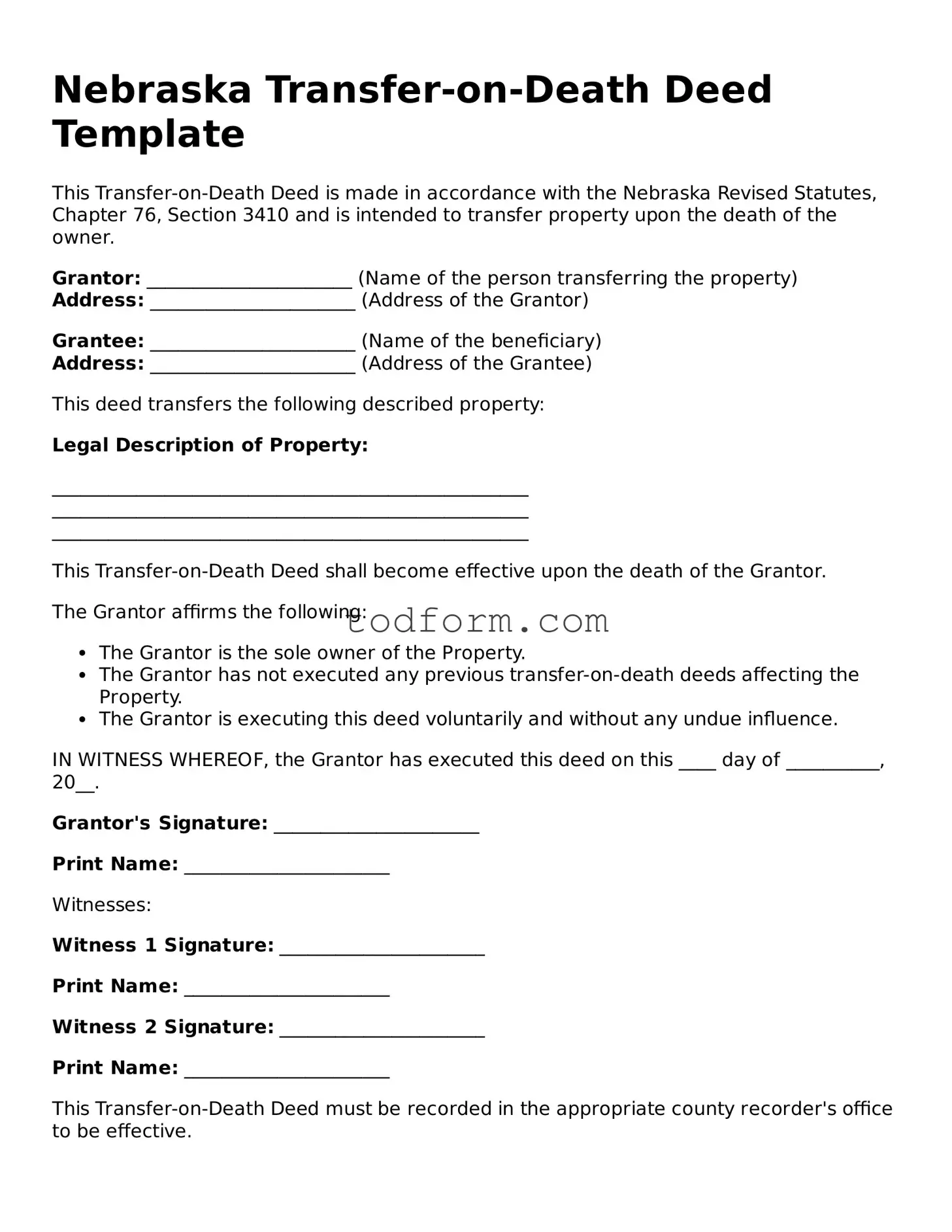Nebraska Transfer-on-Death Deed Template
This Transfer-on-Death Deed is made in accordance with the Nebraska Revised Statutes, Chapter 76, Section 3410 and is intended to transfer property upon the death of the owner.
Grantor: ______________________ (Name of the person transferring the property)
Address: ______________________ (Address of the Grantor)
Grantee: ______________________ (Name of the beneficiary)
Address: ______________________ (Address of the Grantee)
This deed transfers the following described property:
Legal Description of Property:
___________________________________________________
___________________________________________________
___________________________________________________
This Transfer-on-Death Deed shall become effective upon the death of the Grantor.
The Grantor affirms the following:
- The Grantor is the sole owner of the Property.
- The Grantor has not executed any previous transfer-on-death deeds affecting the Property.
- The Grantor is executing this deed voluntarily and without any undue influence.
IN WITNESS WHEREOF, the Grantor has executed this deed on this ____ day of __________, 20__.
Grantor's Signature: ______________________
Print Name: ______________________
Witnesses:
Witness 1 Signature: ______________________
Print Name: ______________________
Witness 2 Signature: ______________________
Print Name: ______________________
This Transfer-on-Death Deed must be recorded in the appropriate county recorder's office to be effective.
